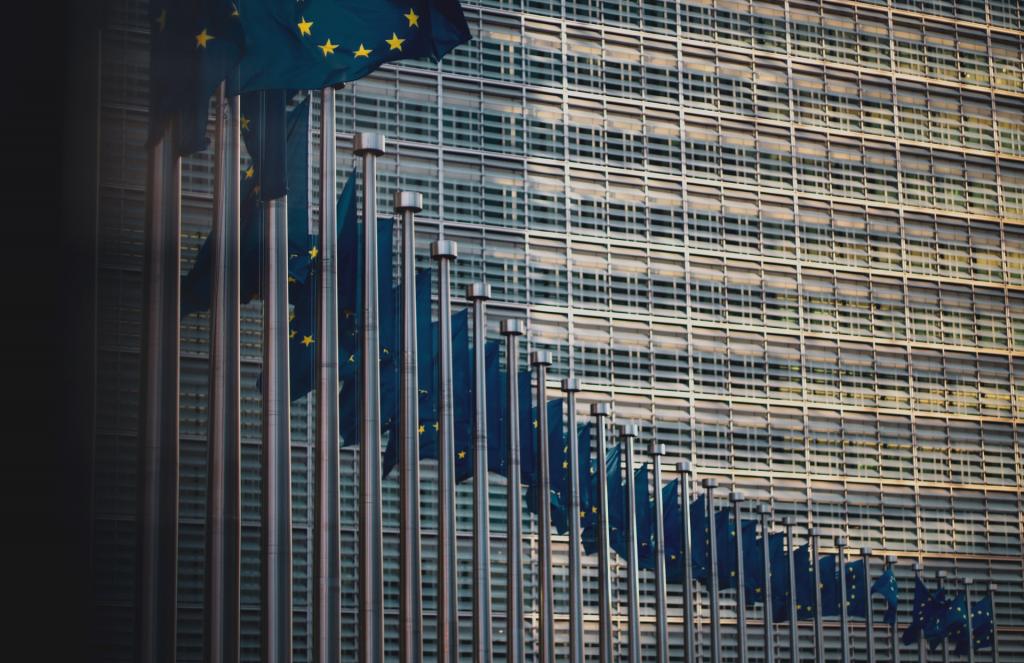Thessaloniki gets ready for its metro launch in November
The underground rapid transit lines have been under construction for almost two decades due to various project delays
 TheMayor.EU logo
TheMayor.EU logo 
With the launch of the NEB LAB, the EC announced the first three connected projects which will deal with creating a Bauhaus regulatory framework
With the launch of the ‘NEB LAB’, the Commission hopes to consolidate supporters of the initiative and help to improve the regulatory framework across regions and municipalities
Yesterday, the European Commission announced the launch of the New European Bauhaus Lab (NEB), something they have labelled as a ‘think and do tank’. The NEB LAB is supposed to consolidate the efforts of all actors involved in advancing the ideas and projects of the New European Bauhaus through connections with regional and municipal authorities across the EU.
NEB LAB started working on its objectives right off the bat, as the launch came with an open platform where companies, public authorities and non-profit organisations can apply and get involved. This is what the Commission describes as a ‘Call for Friends‘.
The move came as a response to the growing demand to involve all these actors more directly in the decision-making process of establishing the New European Bauhaus as a movement.
Furthermore, NEB LAB announced the start of even more projects, including the development of the New European Bauhaus labelling tool, work on regulatory framework conditions and a survey. The survey will be conducted among construction companies, architects, urban planners and others. Its aim, reportedly, is to identify the main barriers to implementing the principles of New European Bauhaus projects in the construction and housing sector.
The aim of the labelling tools calls for the development of a compass and assessment framework for projects and how well they fit the principles of the New European Bauhaus. They will help guide the creation of policy and funding initiatives across the EU and, according to a statement by NEB LAB, should be out by December 2022.
On the other hand, the regulatory framework and survey go hand in hand, with the aim being to deliver concrete and research-based guidelines for policymakers. The results of the survey are scheduled to be published in autumn 2022. At the same time, the whole project will focus on analysing how the existing regulatory framework on the national, regional and local levels can support New Bauhaus projects.

The underground rapid transit lines have been under construction for almost two decades due to various project delays

Now you can get your wine in Talence by paying directly in Bitcoin

That’s because the state has to spend money on updating the railway infrastructure rather than subsidizing the cost of the popular pass

Rethinking renewable energy sources for the urban landscape

The examples, compiled by Beyond Fossil Fuels, can inform and inspire communities and entrepreneurs that still feel trepidation at the prospect of energy transition

Now you can get your wine in Talence by paying directly in Bitcoin

The 10th European Conference on Sustainable Cities and Towns (ESCT) sets the stage for stronger cooperation between the EU, national and local level to fast track Europe's transition to climate neutrality.

At least, that’s the promise made by the mayor of Paris, Anne Hidalgo

The underground rapid transit lines have been under construction for almost two decades due to various project delays

At least, that’s the promise made by the mayor of Paris, Anne Hidalgo

Hostal de Pinós is located in the geographical centre of the autonomous region

Despite its church-y name, the district has long been known as the hangout spot for the artsy crowds

Urban dwellers across the EU are having a say in making their surroundings friendlier to people and the environment.

Forests in the EU can help green the European construction industry and bolster a continent-wide push for architectural improvements.

Apply by 10 November and do your part for the transformation of European public spaces

An interview with the Mayor of a Polish city that seeks to reinvent itself

An interview with the newly elected ICLEI President and Mayor of Malmö

A conversation with the Mayor of Lisbon about the spirit and dimensions of innovation present in the Portuguese capital














